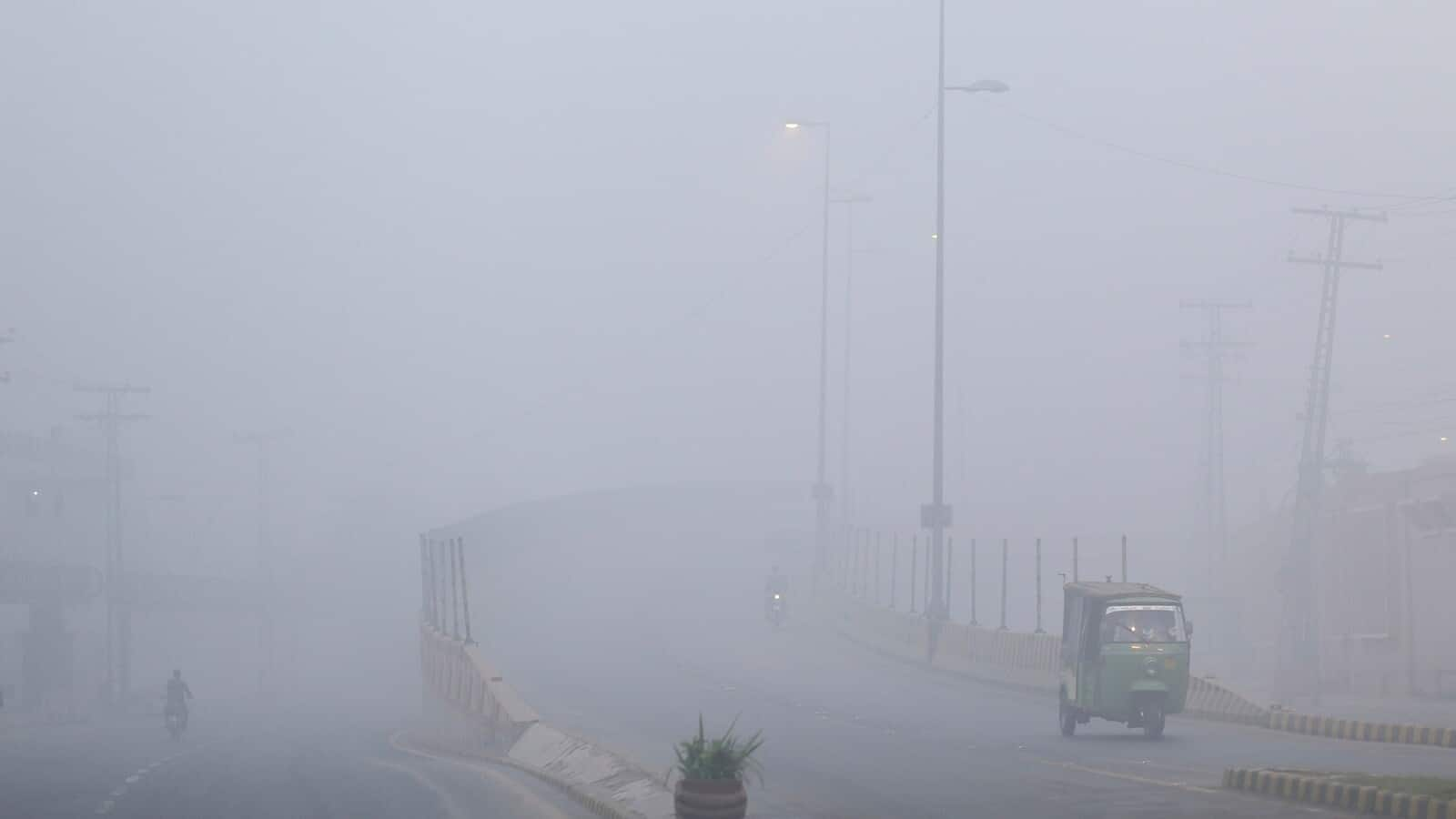
Pakistan: Multan's AQI crosses 2,000-mark; Punjab closes parks, schools
What's the story
Pakistan is grappling with a severe air pollution crisis, with seven of its cities featuring in the world's most polluted. In light of the situation, the Punjab government on Friday shut down amusement parks, museums, and schools in several districts from November 8 to 17 owing to hazardous smog levels. The order applies to districts such as Lahore, Gujranwala, Faisalabad, Multan etc.
Hazardous levels
Multan records alarming AQI, Lahore tops global pollution rankings
Multan, the largest city of south Punjab, recorded an AQI of 2,135 on Friday morning, IQAir reported. The PM2.5 concentration in Multan was 947 micrograms per cubic meter, 189.4 times above the World Health Organization (WHO)'s guidelines. By 10pm on Friday, Multan's AQI still remained at a hazardous 980. Lahore has also been badly hit by the pollution crisis with an AQI of 784 on Thursday topping global pollution rankings.
Health impact
Health risks escalate due to poor air quality
Prolonged exposure to poor air quality has resulted in a spike in hospitalizations for respiratory illnesses in Lahore and other cities such as Multan and Kasur. Health experts are advising residents to wear masks outdoors to reduce health risks. Further, factories failing to comply with rules may be shut down. Offices have been advised to permit only half their employees to work on-site to curb vehicle emissions and citizens are advised to stay indoors as much as possible.
Unprecedented pollution
Lahore experiences record-breaking pollution levels
Lahore recorded the worst pollution levels on November 2, with an AQI of 1,900. Marriyum Aurangzeb, a senior official in the Punjab government, said nearly 900 people were hospitalized as a result of the pollution. PM2.5 pollutants reached a staggering 610 micrograms per cubic meter in Lahore at the time. While some blame has been placed on cross-border pollution from India, Pakistani officials stress that local factors such as crop burning and industrial emissions are major contributors to the crisis.